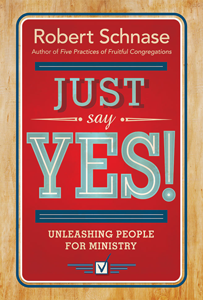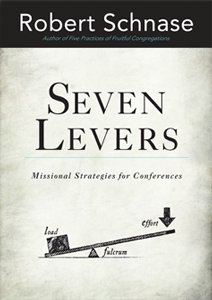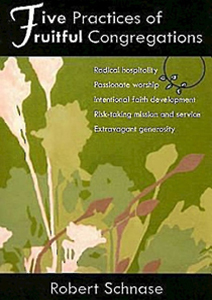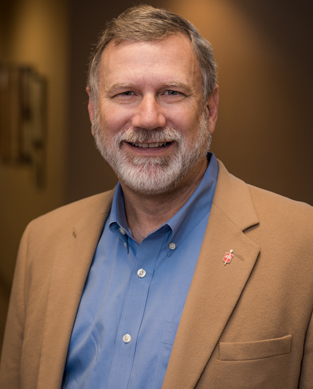Overview of Clergy Systems- PowerPoint
This brief series of powerpoint slides can be used for those who want to introduce the various components of the clergy systems as they begin discussion of this lever.
Overview of Clergy Systems- Clergy Deployment Study
Clergy Deployment Study—in May, 2012, the Missouri Conference contracted with the Lewis Center for Church Leadership to provide an analysis and recommendations related to the patterns of clergy deployment for the future, entitled Changes in Congregations, Clergy, and Deployment 2002-2012, and the attached charts. All conferences in the South Central Jurisdiction had such a completed, and the results help in evaluating and planning for how to reform clergy systems.
Overview of Clergy Systems- Ecosystem as a New Paradigm of Clergy Systems
Bishop Janice Huie, in this essay entitled "A New Paradigm for Clergy Leadership: Cultivating an Ecosystem of Excellence," invites us to think in fundamentally different ways about how we cultivate clergy, leaving behind the old "clergy pipeline" metaphor for a fresh understanding of ecosystems.
Recruitment- The Hannah Project
The Hannah Project invites congregations to participate in identifying gifted people for ministry and to stimulate consideration of a call to Christian service. This brochure serves to introduce the program to congregations in the Missouri Conference.
Recruitment- Conference Website on The Call to Ministry
The Missouri Conference designed this website for those in the early stages of discerning a call to ministry who are looking for resources or ideas. We've used video of clergy to help people explore their call.
Recruitment- Exploration Events
The Missouri Conference encourages young people to attend the biennial Exploration event sponsored by the General Board of Higher Education and Ministry. We also launched our own conference-wide Exploration events for people of all ages contemplating the call to ministry. Attached is a brochure and outline of the event, which is held in years when a national event is not offered.
The Candidacy Process- The Candidacy Summit
Because the responsibility for candidacy rests with District Committees, we have struggled to bring consistency to the process across twelve districts. We now offer a Candidacy Summit that brings all candidates together in one place to receive common information and complete required forms and psychological profiles in one retreat, supported by clergy and with excellent music and worship.
The Candidacy Process- Path for Candidacy
Here's our checklist, similar to that of many other conferences, which we provide to help candidates understand and navigate the complexities of the ordination processes.
Seminary Education- Frederick Schmidt Article
The website, www.patheos.com, includes a number of excellent articles about the future of seminary education. While I disagree about a few of Dr. Schmidt's recommendations, I find his description of the challenges compelling and helpful.
Seminary Education- Dr. Daniel Aleshire Article
This document provides one of the keenest and most concise statements of the challenge and future of seminary education.
Education and Preparation- Seminary Internships
In cooperation with the Missouri United Methodist Foundation, the conference sponsors seminary internships during the summer to give students greater field experience.
Residents in Ministry
We've adjusted our Residents in Ministry program to focus more on developing the practical leadership skills that may not have been addressed in seminary or previous experience. We now configure our sessions to align with our Pastoral Leadership Development groups.
Younger Clergy- Articles on Why Young Clergy Matter
The following links include articles from the Lewis Center for Church Leadership regarding Why Young Clergy Matter, Suggestions for Churches with Young Pastors, and Ways Established Church Leaders Can Work with Younger Clergy.
Order of Elders, Deacons, Local Pastors- Converge
We have done away with an older style Ministers School and replaced it with high quality events that bring together clergy of all statuses for worship, music, learning, and fun. Converge has been well attended and deeply appreciated. Here are a couple brochures from recent events.
The Appointment System- Appointment Guidelines and Criteria
These pages are reviewed and revised each year as the cabinet begins the appointment process. These values and expectations drive the process. We refine the language a little each year, and we review these processes and criteria at the end of the appointment season to evaluate how faithful we've been to these guidelines.
The Appointment System- The Selection of District Superintendents
The bishop consults with the cabinet on the appointment of District Superintendents and invites nominations in writing. At the outset, these criteria for selection are reviewed and discussed. This page also is reviewed and discussed with any prospective new cabinet member at the meeting in which the bishop invites the person to serve as superintendent.
The Appointment System- Lay Persons Serving Local Churches
The Appointment System- 2014 Video Describing Appointment System
During annual conference in 2014, the bishop walked through the entire appointment process from beginning to end, describing the values and processes at work in determining appointments. The bishop has done similar presentations for clergy and other select groups. The attempt is to be as transparent as possible about what are sometimes perceived as mysterious or hidden processes.
The Appointment System- Protocols for Superintendents During Changes of Appointment
Each year during the appointment process, the cabinet reviews in detail the significant steps and ordering in the process of offering an appointment to a pastor, engaging the Staff Parish Relations Committee, announcing that a pastor is leaving, and introducing a new pastor. We believe that these are critical moments in a pastor's life and critical times of transition for a congregation, and that careful attention by the DS during these weeks can make a fundamental difference in improving the probability of success of the new appointments. Included here are the informal notes taken by one District Superintendent during one of these discussions.
The Appointment Processes- Clergy Transition in Large and Very Large Churches
This outline by Gil Rendle describes some of the key characteristics that make clergy transition in large churches particularly important.
The Appointment System- Right Start Seminars
All pastors under full-time appointment who are moving to a new appointment attend the Right Start workshop, hosted by the cabinet. They receive practical information about salaries, insurance, and moving expenses, as well as presentations on starting well in the new appointment. They also receive demographic reports related to their new areas, and instructions on how to use them. This is done in an environment of worship and conversation. Here's the brochure and agenda of one such event.
Clergy Evaluation
Attached are samples of evaluation instruments used for pastors, including their Self-Evaluation and Evaluation by the Staff-Parish Relations Committee. Examples are given for full-time and part-time. These samples represent the default forms, and they align with the Five Expectations described in chapter entitled Finding Focus. However, District Superintendents are encouraged to modify the evaluations as they see fit, and this allows us to learn more about what is helpful for the pastors and for the supervisory process. Some churches, especially large, multi-staff churches, use their own instruments for clergy evaluation, and the DS has the discretion to accept those in place of the conference default form.
District Superintendent and Conference Director Evaluations
District Superintendents and Directors undergo an evaluation once every two years that includes their self evaluation and feedback from approximately 30 people in their district selected by the bishop and the assistant to the bishop. The thirty people include laity and clergy in formal leadership positions, members of conference, and several randomly selected pastors and local church leaders. A similar pattern guides the process for Directors, relying on feedback from 30 or 40 pastors and laity across the conference. After all responses are gathered and collated by the assistant to the bishop, the bishop conducts a one-hour face-to-face evaluation that culminates in recommendations for future learning or focus.
Episcopal Evaluation- 2007 Missouri Episcopacy Committee
In 2007, Missouri initiated an evaluation process for the bishop. The Conference Episcopacy Committee developed a form and solicited responses from approximately sixty laity and clergy across the conference, some selected because of their conference leadership position and others selected randomly. This was one of the first and earliest attempts by conferences to develop an evaluation process for bishops, and we borrowed some of the format from other conferences that were experimenting at the same time.
Episcopal Evaluation- 2011 South Central Jurisdiction Assessment of Bishops
In 2011, the South Central Jurisdictional Episcopacy Committee developed an evaluation process. This included several components, including a survey that invited approximately fifty people to offer evaluative comments using SurveyMonkey. Various elements of the evaluation are found here.
Episcopal Evaluation – Weems Article on Evaluating Bishops
In this essay, "What Next for the Evaluation of Bishops?," Lovett Weems, Director of the Lewis Center for Church Leadership, wrote this essay that delves into the complexity and necessity of evaluation for Episcopal leaders.
Episcopal Evaluation – Bishop's Semi-Annual Report to Conference Episcopacy Committee
In the absence of a clear agenda for the Conference Episcopacy Committee during my first year as a bishop, I began the practice of outlining and reviewing conference priorities, my time commitments, and challenges ahead. I revise and update the report for each semi-annual meeting and this becomes the focal point for conversation and feedback. I have included three samples here from 2005, 2008, 2010, and 2013 to show the progression in process as priorities became more clear and as strategies became more elaborate.
Clergy Evaluation – The Use of Metrics
Gil Rendle has written several significant essays about the use of metrics for evaluating and assessing churches, progress toward our mission, and clergy effectiveness and fruitfulness. This link takes us to a Texas Methodist Foundation website that allows you to access the following articles by Rendle.
Clergy Ineffectiveness – Intervention or Exit Policy
This is the policy we've used to guide conversations and set benchmarks for clergy identified as ineffective in the pastoral role. We are currently revising the policy, and this one will be out of date soon. It follows the Discipline, but makes more explicit the signs of ineffectiveness and more clear the steps of the process.
Clergy Ineffectiveness – Called Anew; Sent with Love
This brochure from the Indiana Conference captures some of the sense of changing directions or rethinking the call that we would like to use in our updated policies.







